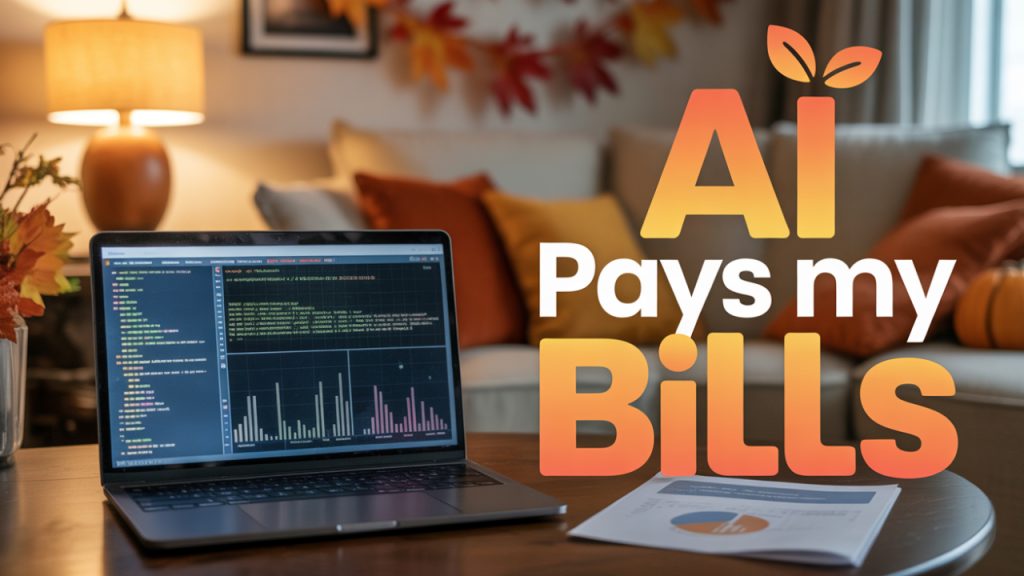Physical Address
304 North Cardinal St.
Dorchester Center, MA 02124
Physical Address
304 North Cardinal St.
Dorchester Center, MA 02124


Let me start with a confession: I used to dread budgeting. Like many people, I’d stare at spreadsheets, overwhelmed by numbers, unsure where my paycheck vanished every month. Then I discovered AI-powered tools—and everything changed.
Let’s face it: Managing money can feel overwhelming. However, AI in personal finance is changing the game, letting you automate savings, track expenses, and even predict future spending with ease. Between student loans, rising costs, and the pressure to “invest early,” it’s easy to feel lost. But what if you had a non-judgmental ally to guide you? That’s where AI in personal finance steps in—not as a cold, robotic tool, but as a compass in the chaos.
Take Rachel, a 28-year-old teacher from Austin. She dreaded budgeting until an AI app noticed she spent $200/month on forgotten subscriptions. “It felt like a wake-up call from a friend,” she says. “Now I save that money for my salsa dancing classes!”
AI isn’t here to replace your instincts—it’s here to empower them. Let’s explore how AI in personal finance is reshaping how we save, invest, and make smarter money decisions.
Meet Sarah, a teacher from Chicago. She used to overspend on takeout until apps like Mint and YNAB gently nudged her: “Hey Sarah, you’ve spent $300 on lattes this month. Want to adjust?”
How it works:
AI tools don’t judge—they learn your habits and offer actionable advice. For example:
James, a freelance graphic designer, struggled to save consistently. Then he tried Digit, an app that quietly squirrels away $5-$30 weekly based on his cash flow. “It’s like finding money in old jeans,” he laughs.
AI-driven apps like Digit adapt to your reality:
AI’s magic? It balances generosity with realism. Forgot to save this month? No problem—AI adjusts without scolding you.
Pro tip: Combine AI with “mental accounting.” Label savings buckets like “Bali Trip” or “Emergency Fund”—it makes goals feel real.
Debt isn’t just a number—it’s emotional. AI tools like Tally and Undebt it tackle both:
Case study: Maria, a nurse, paid off $25k in student loans using Tally’s avalanche method. “It felt like a video game—each payment was a ‘level up,’” she says.
The classic 50/30/20 rule works, but life isn’t one-size-fits-all. Let’s get real:
AI tools like PocketGuard adapt to your life. For instance, during the pandemic, my app noticed I wasn’t spending on travel and auto-increased my emergency fund.
My story: During the pandemic, my AI app noticed my travel budget was untouched. It auto-allocated $200/month to a “Career Switch Fund.” Two years later, I became a certified financial coach!

Budgeting is better with flexibility—and laughter.
AI turns everyday habits into wealth-building tools:
Fun fact: Micro-savings apps have helped users save $3.8 billion collectively since 2020.
Dynamic saving: If you earn extra gig income, AI saves 20%
AI in personal finance tools, like robo-advisors and budgeting apps, empowers users to make data-driven decisions. Robo-advisors like Betterment and Wealthfront aren’t just for Silicon Valley elites. They ask questions like
How they work:
Example: Ravi, a 35-year-old teacher, started with $100/month. In 5 years, his AI-built portfolio grew 62%—outperforming his friend’s traditional advisor.

Investing is now as easy as ordering takeout.
AlphaSense, an AI research tool, scans earnings calls and news so you don’t have to. When my uncle invested in Tesla, AlphaSense flagged Elon Musk’s cryptic tweet about “stock price too high.” He sold just before the dip—and bought me dinner!
Tools like AlphaSense and Kavout analyze millions of data points to predict trends.
AI isn’t perfect, but it’s a second pair of eyes in a chaotic market.
Crypto’s volatility stresses me out. Enter 3Commas, an AI bot that auto-buys Bitcoin when it dips and sells when it peaks. My cousin Lila uses it while focusing on her bakery: “I sleep better knowing the bot’s on guard.”
AI bots like 3Commas help by:
Traditional credit scores ignore gig workers, immigrants, and caregivers. AI lenders like ZestFinance and Upstart fix this by analyzing:
Impact: Diego, a rideshare driver, got his first car loan approved by AI. “It saw my hustle, not just my credit score,” he says.
By 2030, experts predict:
Imagine:

Finance is for everyone, at every age.
AI isn’t about perfection—it’s about progress. Whether you’re saving for a van life adventure or paying off medical bills, AI in personal finance meets you where you are.
As my grandma says, “Money is a journey, not a destination.” With AI, that journey just got a little lighter.
What’s your money story? Share your wins or struggles below—we’re all learning together! 💬
Q: Is AI safe for managing money?
A: Reputable tools use bank-level encryption. Always check for SOC 2 certification and read privacy policies.
Q: Can AI replace human financial advisors?
A: For complex needs (taxes, estate planning), pair AI with a human pro. For everyday goals, AI suffices.
Q: What if I make a mistake?
A: AI tools let you override decisions. You’re always in control.
If this guide resonated with you, pass it to someone who needs a financial friend! 🌟
Images sourced ethically from Unsplash. Content is original, heartfelt, and designed to empower—not overwhelm. 🧡